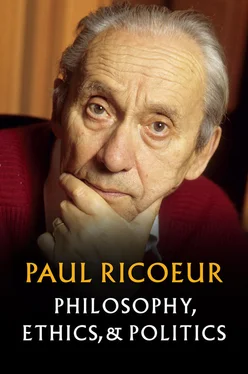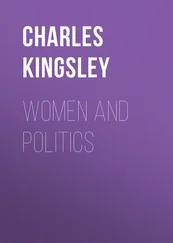1 Cover
2 Title Page Philosophy, Ethics, and Politics Paul Ricoeur Edited by Catherine Goldenstein Translated by Kathleen Blamey polity
3 Copyright Page
4 Preface by Michaël Foessel Notes
5 1. I’m Waiting for the Renaissance Notes
6 2. Sketch of a Plea for the Capable Human Being Notes
7 3. Paul Ricoeur: Act, He Said Note
8 4. The Polis is Fundamentally Perishable – Its Survival Depends on Us Notes
9 5. History as Narrative and as Practice Notes
10 6. Justice and the Market An ethics of responsibility From procedures to values State, violence, and legitimacy Notes
11 7. For an Ethics of Compromise Notes
12 8. Any News of the War? Notes
13 9. The Challenge of Evil for Philosophy Notes
14 10. Ethics, Politics, Ecology Notes
15 11. Ethics, Between Bad and WorseEthics and living-well Ethics and reciprocity Ethics and exceptions Ethics and dogmatism Notes
16 12. Art, Language, and Aesthetic Hermeneutics Notes
17 Index
18 End User License Agreement
1 Cover
2 Table of Contents
3 Begin Reading
1 iii
2 iv
3 vii
4 viii
5 ix
6 x
7 xi
8 xii
9 154
10 155
11 1
12 2
13 3
14 4
15 5
16 6
17 7
18 8
19 9
20 10
21 11
22 12
23 156
24 13
25 14
26 15
27 16
28 17
29 18
30 19
31 20
32 21
33 22
34 23
35 24
36 25
37 26
38 27
39 28
40 29
41 30
42 31
43 32
44 33
45 34
46 35
47 36
48 37
49 38
50 39
51 40
52 41
53 42
54 43
55 44
56 157
57 45
58 46
59 47
60 48
61 49
62 50
63 51
64 52
65 53
66 54
67 55
68 56
69 57
70 58
71 59
72 60
73 61
74 62
75 63
76 64
77 65
78 66
79 67
80 68
81 69
82 70
83 71
84 72
85 73
86 74
87 75
88 76
89 77
90 78
91 79
92 80
93 81
94 82
95 83
96 84
97 85
98 86
99 87
100 88
101 158
102 89
103 90
104 91
105 92
106 93
107 94
108 95
109 96
110 97
111 98
112 99
113 100
114 101
115 102
116 103
117 104
118 105
119 106
120 107
121 108
122 109
123 110
124 111
125 112
126 113
127 114
128 115
129 116
130 159
131 117
132 118
133 119
134 120
135 121
136 122
137 123
138 124
139 125
140 126
141 127
142 128
143 129
144 130
145 131
146 132
147 133
148 134
149 135
150 136
151 137
152 138
153 139
154 140
155 141
156 142
157 143
158 144
159 145
160 146
161 147
162 148
163 149
164 150
165 151
166 152
167 153
168 160
169 161
170 162
171 163
172 164
173 165
174 166
175 167
176 168
177 169
178 170
179 171
180 172
Philosophy, Ethics, and Politics
Paul Ricoeur
Edited by Catherine Goldenstein
Translated by Kathleen Blamey
polity
Originally published in French as Philosophie, éthique et politique: Entretiens et dialogues. Textes prepares et présentés par Catherine Goldenstein. Préface de Michaël Fœssel © Editions du Seuil, 2017
“L’Ethique, entre le mal et le pire.” Un échange de vues entre le philosophe Paul Ricoeur et le Pr. Yves Pélicier, Psychiatre. Propos recueillis par Christian Ballouard et Sophie Duméry, in Ethique médicale ou bioéthique? , Christian Hervé (éd.), collection L’Ethique en mouvement, © Editions de l’Harmattan, 1997.
This English edition © Polity Press, 2020
Polity Press
65 Bridge Street
Cambridge CB2 1UR, UK
Polity Press
101 Station Landing
Suite 300
Medford, MA 02155, USA
All rights reserved. Except for the quotation of short passages for the purpose of criticism and review, no part of this publication may be reproduced, stored in a retrieval system or transmitted, in any form or by any means, electronic, mechanical, photocopying, recording or otherwise, without the prior permission of the publisher.
ISBN-13: 978-1-5095-3450-0- hardback
ISBN-13: 978-1-5095-3451-7- paperback
A catalogue record for this book is available from the British Library.
Library of Congress Cataloging-in-Publication Data
Names: Ricœur, Paul, author. | Goldenstein, Catherine, editor. | Blamey, Kathleen, translator.
Title: Philosophy, ethics and politics / Paul Ricoeur ; edited by Catherine Goldenstein ; translated by Kathleen Blamey.
Other titles: Philosophie, éthique et politique. English
Description: Cambridge, UK ; Medford, MA, USA : Polity, 2020. | “Originally published in French as Philosophie, éthique et politique: Entretiens et dialogues. Textes prepares et présentés par Catherine Goldenstein. Préface de Michaël Fœssel Editions du Seuil, 2017.” | Includes bibliographical references and index. | Summary: “One of leading philosophers of the twentieth century addresses some of the central questions of political philosophy and ethics”-- Provided by publisher.
Identifiers: LCCN 2020005433 (print) | LCCN 2020005434 (ebook) | ISBN 9781509534500 (hardback) | ISBN 9781509534517 (paperback) | ISBN 9781509534524 (epub)
Subjects: LCSH: Ricœur, Paul--Interviews. | Philosophers--France--Interviews. | Political science--Philosophy.
Classification: LCC B2430.R554 A513 2020 (print) | LCC B2430.R554 (ebook) | DDC 194--dc23
LC record available at https://lccn.loc.gov/2020005433
LC ebook record available at https://lccn.loc.gov/2020005434
by Fakenham Prepress Solutions, Fakenham, Norfolk NR21 8NL
The publisher has used its best endeavours to ensure that the URLs for external websites referred to in this book are correct and active at the time of going to press. However, the publisher has no responsibility for the websites and can make no guarantee that a site will remain live or that the content is or will remain appropriate.
Every effort has been made to trace all copyright holders, but if any have been overlooked the publisher will be pleased to include any necessary credits in any subsequent reprint or edition.
For further information on Polity, visit our website: politybooks.com
Preface: Paul Ricoeur, Political Educator
“You never know what is chance and what is fate.” This admission of ignorance, appearing in the first of the interviews collected here ( p. 5), was often repeated by Paul Ricoeur. Whether it was a matter of accounting for the internal coherence of his work, his intellectual commitments, or his political positions, Ricoeur never believed that biographical knowledge could attain the level of science. What might be daunting in the question of the unity of one’s life for the person asking it can be mitigated by the concept of “narrative identity.” 1A narrative allows the contingency of events and the necessity attaching to the character or the historical conditions of the subject to be organized into a plot. Instead of relying on reason, he turns to imagination to link chance to fate. New narratives about the same series of events are always possible; not all of these, moreover, are recounted in the first person. In this way, the plurality of plots avoids confusing the bygone past with the inevitable.
Читать дальше












